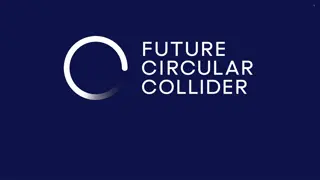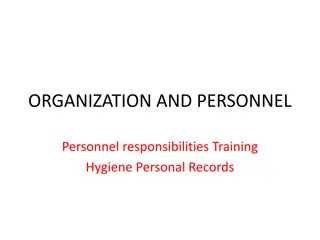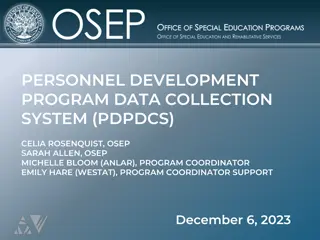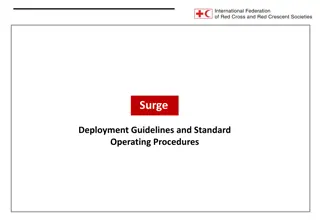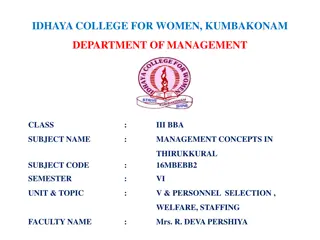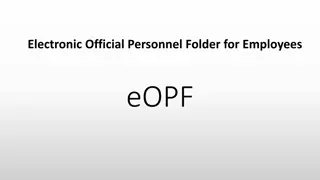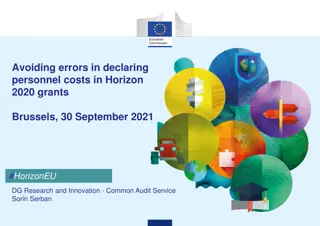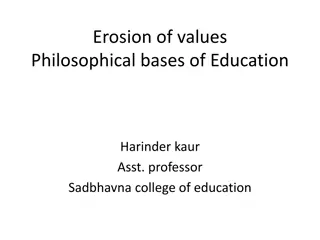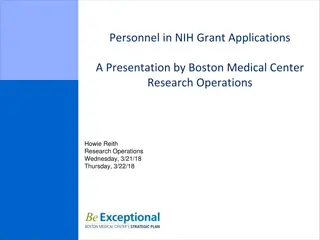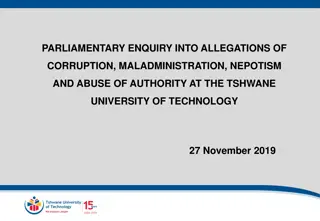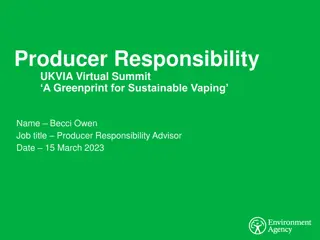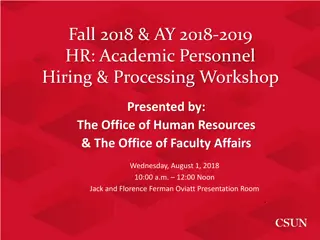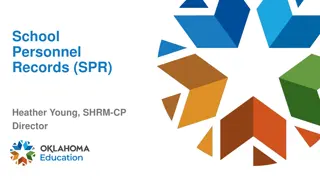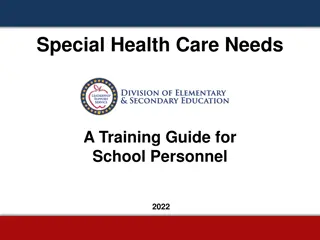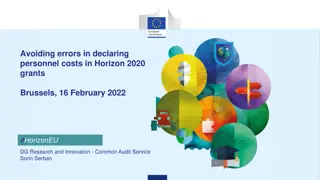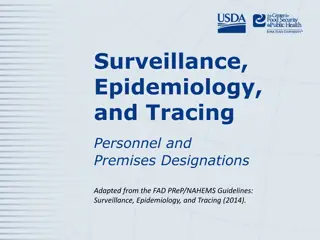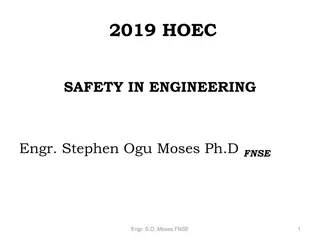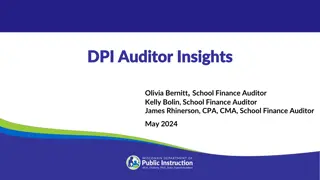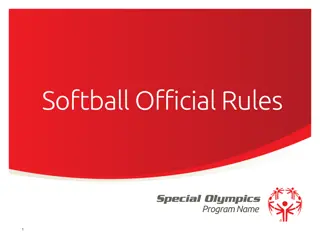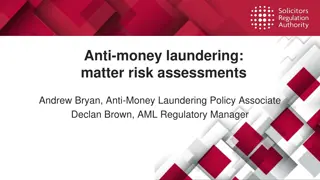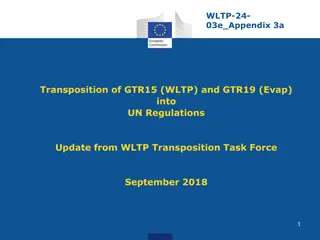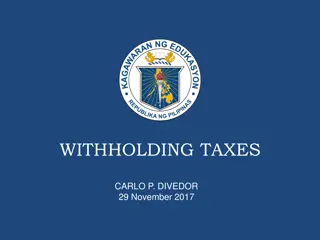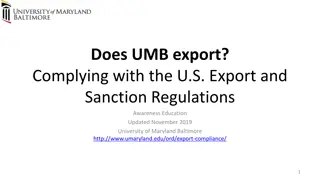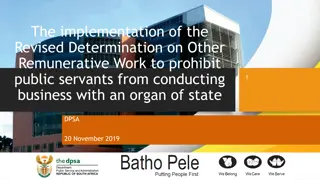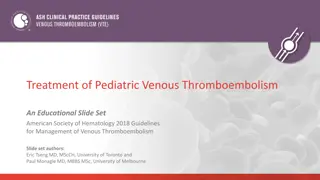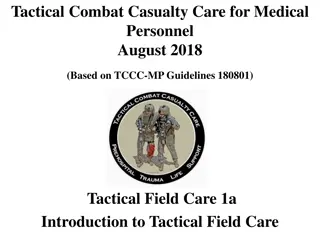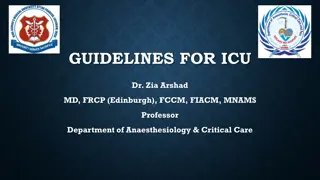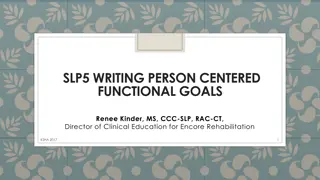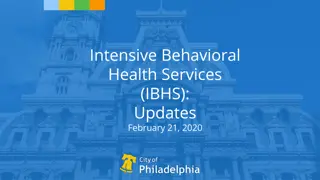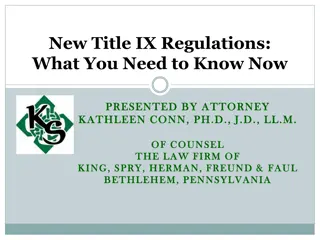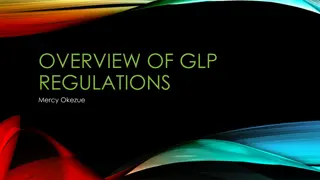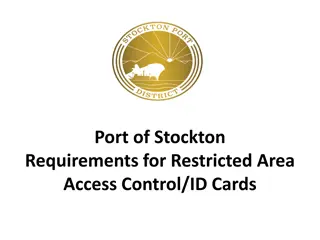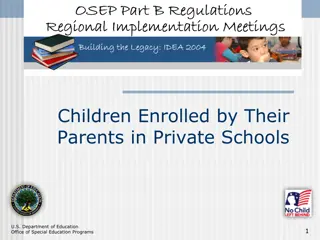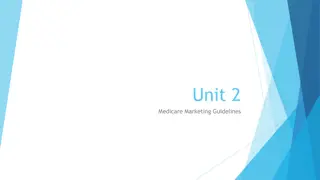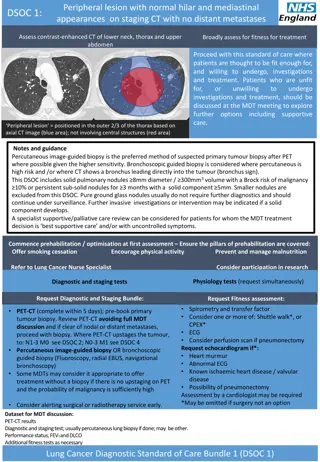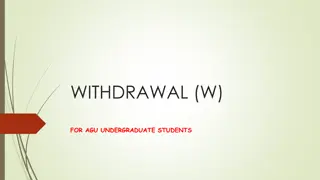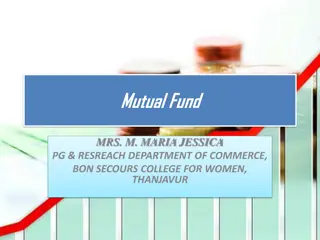Guidelines and Regulations on Nepotism in Personnel Decisions
Wisconsin statutes and university policies prohibit nepotism in personnel decisions. State public officials, unclassified staff, and university staff have specific rules to follow, such as not participating in decisions involving immediate family members. Immediate family is defined broadly to include spouses, relatives by marriage, or those who receive significant support from the individual. Violating these regulations can lead to disciplinary action.
Download Presentation

Please find below an Image/Link to download the presentation.
The content on the website is provided AS IS for your information and personal use only. It may not be sold, licensed, or shared on other websites without obtaining consent from the author. Download presentation by click this link. If you encounter any issues during the download, it is possible that the publisher has removed the file from their server.
E N D
Presentation Transcript
NEPOTISM IN PERSONNEL DECISIONS (NOT ALLOWED)
WHERE ARE THE RELEVANT RULES? The Chancellor and Vice Chancellors, who are considered state public officials, must follow Wis. Stat. 19.45. Unclassified employees (limited appointees who are not state public officials, faculty, and academic staff) must follow Wis. Admin. Code Chapter UWS 8. University Staff must follow section III of Regent Policy Document 20-22.
CODE FOR STATE PUBLIC OFFICIALS Section 19.45(2) of the Wisconsin Statutes states: No state public official may use his or her public position or office to obtain financial gain or anything of substantial value for the private benefit of himself or herself or his or her immediate family, or for an organization with which he or she is associated.
CODE FOR UNCLASSIFIED STAFF Section UWS 8.03(3) states: NEPOTISM. (a) No member of the unclassified staff may participate, formally or informally, in the decision to hire, retain, grant tenure to, promote or determine the salary of a member of his or her immediate family. (b) No member of the unclassified staff may, in the supervision or management of another unclassified staff member who is a member of his or her immediate family, give preferential or favored treatment.
CODE FOR UNIVERSITY STAFF Section III of UW System Board of Regents Policy Document 20-22 states: No University Staff member may participate, formally or informally, in the decision to hire, retain, promote or determine the salary of a member of his or her immediate family. No University Staff member may, in the supervision or management of another employee who is a member of his or her immediate family, give preferential or favored treatment.
WHO IS CONSIDERED IMMEDIATE FAMILY ? Per Wis. Stat. 19.42(7), (a) An individual's spouse; and (b) An individual's relative by marriage, lineal descent or adoption who receives, directly or indirectly, more than one-half of his or her support from the individual or from whom the individual receives, directly or indirectly, more than one-half of his or her support. Per UWS 8.02(9), (a) An unclassified staff member s spouse; and (b) Any person who receives, directly or indirectly, more than one half of his or her support from an unclassified staff member or from whom an unclassified staff member receives, directly or indirectly, more than one half of his or her support. Per RPD 20-22, an employee s spouse or domestic partner; an employee s relatives by marriage, consanguinity or adoption; and any other person who receives, directly or indirectly, more than one half of his or her support from an employee or from whom an employee receives, directly or indirectly, more than one half his or her support.
OTHER POTENTIALLY APPLICABLE RULES: UWM Faculty Policies and Procedures 5.39: Nepotism. (1) No member of the unclassified staff may participate, formally or informally, in the decision to hire, retain, grant tenure to, promote or determine the salary of a member of his or her immediate family, including domestic partners or others living together as a family. (2) No member of the unclassified staff may give preferential or favored treatment in the supervision or management of a member of his or her immediate family, including domestic partners or others living together as a family. UWM Academic Staff Personnel Policies and Procedures 113.05(3): Nepotism (a) No member of the academic staff shall participate, formally or informally, in the decision to hire, retain, grant tenure to, promote, or determine the salary of a member of his/her immediate family. (b) No member of the academic staff shall give preferential or favored treatment in the supervision or management of another academic staff member who is a member of his/her immediate family. UWM Code of Conduct (S-65): Those acting on behalf of the University have a general duty to conduct themselves in a manner that will maintain and strengthen the public's trust and confidence in the integrity of the University and take no actions incompatible with their obligations to the University. UPS Operational Policy WE 3: Workplace Conduct Expectations: UW System property, services, resources, or information shall not be used for personal gain.
HYPOTHETICAL #1 Married couple (Tom and Sarah) are members of the same departmental Executive Committee. For the upcoming academic year, the EC needs to elect an new department chair, and Sarah has decided to run. Can Tom vote on this decision?
HYPOTHETICAL #2 Associate Professor Jane Smith is a member of a departmental Executive Committee. The Department is recruiting a new Assistant Professor, and Jane s husband, who currently works in private industry, has applied. Jane recognizes that she must recuse herself from the portions of the recruitment directly relating to her husband, and to this end has agreed not to attend his interview, vote on his advancement, etc. However, it is a small department, and Jane is concerned about the quality of any new hire, so has asked to be able to provide input on the other candidates. Can she do so?
HYPOTHETICAL #3 Professor Smith has a two-year grant to study XYZ. The grant provides funding for three research assistants. His daughter is working on her PhD in the department, has excellent grades, and is interested in this research area. Can Professor Smith hire his daughter to work on this grant?
HYPOTHETICAL #4 The College has an unexpected vacancy for an administrative support position in its XYZ department. It is a critical time the semester starts in less than a week, the phones are ringing off the hook, and there is simply no time to conduct a recruitment. The Dean s domestic partner is a very smart, organized, and collegial person and most importantly, is available to help immediately. The Dean indicates that the Department can use her as an LTE until a more formal process can be conducted. Is this okay?
WHAT SHOULD YOU BE DOING, AND WHERE CAN YOU SEEK GUIDANCE? Promote better awareness of the rules within your College/School. Monitor that the rules are being followed. Know where to get support: Audit, Legal Affairs, Human Resources, Faculty Ethics Advisory Committee ( Provides consultation and advice on the application of UWS 8 to any member of the faculty ), and Academic Staff Committee ( The Academic Staff Committee shall serve as the Ethics Committee. It is responsible for providing any academic staff member or his/her supervisor with consultation and advice on the application of UWS 8 or UWM Chapter 113 ).


